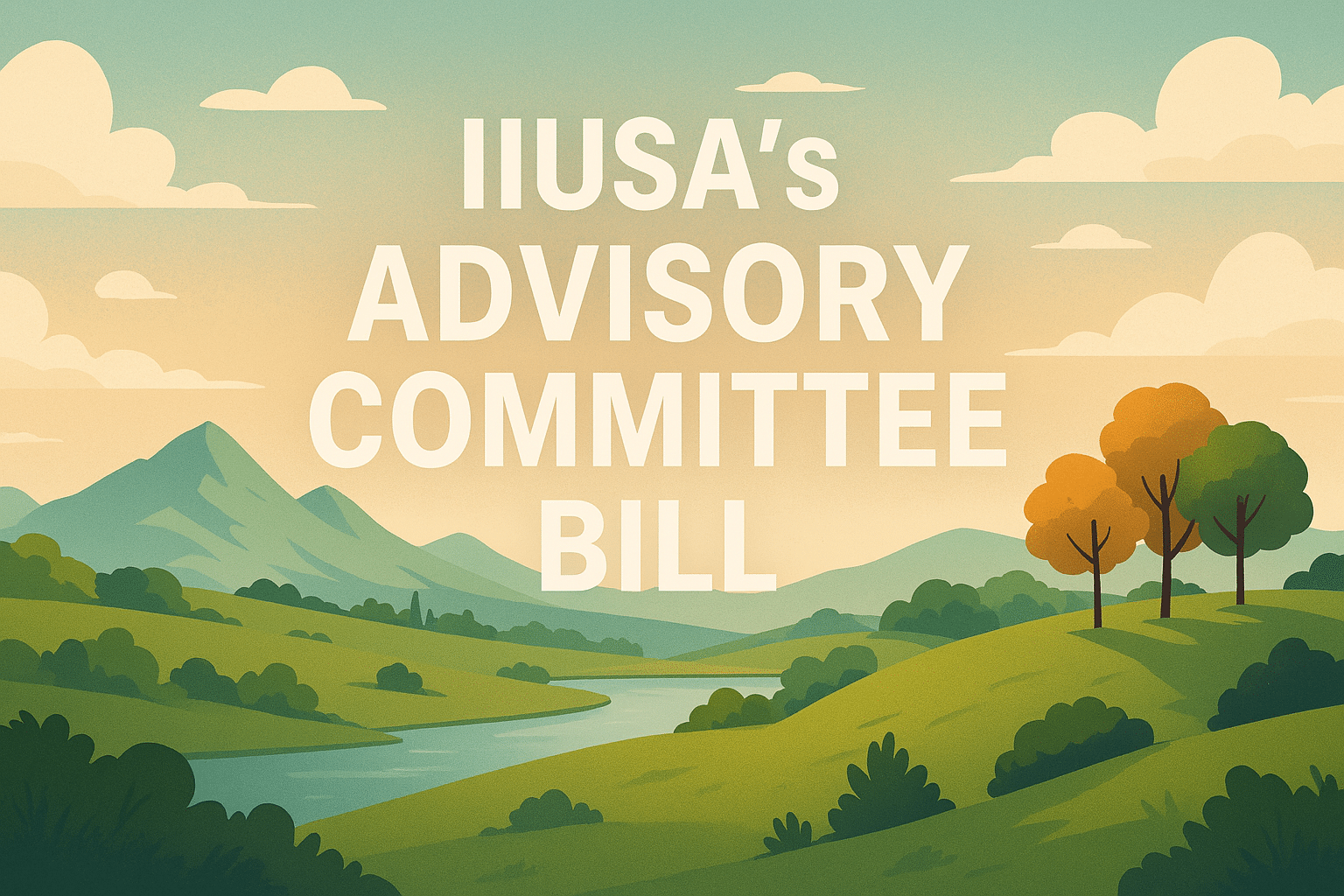IIUSA’s Advisory Committee Bill

This article was originally printed in the IIUSA Regional Center Business Journal’s November 2024 edition, written by George McElwee, founding member and managing partner of Commonwealth Strategic Partners (CSP) and Aaron Grau, Founder of Grau & Associates, LLC.
IIUSA has long wanted to establish better communications with the United States Citizenship and Immigration Services (USCIS). As IIUSA’s members know, meaningful communications with USCIS are non-existent. After much discussion and exploration on possible solutions, IIUSA conceived the idea to pursue better communications with USCIS by having Congress establish a federal advisory committee.
After many drafts and exchanges of information with IIUSA, this past February, Congressmen Greg Stanton (D-AZ-4), Brian Fitzpatrick (R-PA-1), Lance Gooden (R-TX- 5), and Dwight Evans (D-PA-3) introduced bipartisan legislation, H.R. 7220, EB-5 Regional Centre Programme Advisory Committee Authorisation Act.
This legislation intends to break the communication log jam with USCIS and provide a better path forward for the EB-5 ecosystem (regional centres, mayors, state and county economic development officers, and representatives from the U.S. Department of State and U.S. Department of Commerce). IIUSA was seeking a mechanism to allow our members the opportunity to engage USCIS and to ensure that the industry could participate in meaningful meetings and dialogue with the agency.
Establishing a federal advisory committee via legislation is one tool that IIUSA identified to achieve improved communications. Advisory committees, which have been used successfully in efforts like this in the past, not only give the public and industry partners a seat at the table with an agency, but they also assist Congress with policymaking via the recommendations offered at required mandatory meetings.
Since the committee is established by Congress, it is responsible for reporting back to Congress on their progress and the agency is held accountable. At IIUSA’s urging, H.R .7220, EB-5 Regional Centre Programme Advisory Committee Authorisation Act, would establish an advisory committee composed of experts in the EB-5 Regional Centre Programme space.
The advisory committee, hosted by USCIS, will bring together Regional Centre owners, and state and local officials to communicate, coordinate, and advise UCSIS on administering the Regional Centre Programme. Regional Centres sitting on the Committee would be capable of interacting directly with the USCIS EB-5 leadership.
While USCIS has facilitated several ’listening sessions’ and appeared to field questions about the Regional Centre Programme’s operations, these engagements fall short of meaningful dialogue.
For those IIUSA members who have had opportunities to work with other federal agencies, USCIS’s reluctance to engage, answer questions, or effectively promulgate rules is anomalous. Their decision to function in their own silo is outside the norm.
USCIS’s decision to remain closed to stakeholders is seemingly based on its misinterpretation of section 107 of the Reform and Integrity Act. Section 107(a) mandates that USCIS shall act impartially and may not give preferential treatment to any entity, organisation, or individual in connection with any aspect of the immigrant visa programme described in section 203(b)(5) of the Immigration and Nationality Act (8 U.S.C. 1153(b)(5).
While this mandate at first glance seems broad, in reviewing the complete text, it becomes clear that the focus of section 107 is to prohibit case-specific preferential treatment to specifically defined EB-5 program beneficiaries and to ensure that more general information about the Programme’s administration which is provided to specific stakeholders also be shared promptly with the industry at large.
In recognition of this prohibition, HR 7220 specifically states that, “[t]he Advisory Committee shall not make any petition or case-specific recommendations to the programme…” What is decidedly not prohibited by the RIA’s section 107 is communicating, meeting, or engaging with individuals, industry stakeholders and industry associations seeking to engage the agency on policy guidance.
The advisory committee’s primary task is to, “advise, consult with, report to, and make recommendations to the Director of U.S. Citizenship and Immigration Services regarding the EB-5 Regional Centre Programme.” Such recommendations are not required to be taken, but they are a matter of public record and they, along with the professional deliberations and conversations had to make them are a precise reason the bill was introduced in the first place: ’meaningful communications’.
IIUSA earnestly believes that meaningful dialogue, in which USCIS and the EB-5 stakeholders have mutual respect and can exchange ideas without the spectre of lawsuits, is a better path forward for the EB-5 ecosystem.
The advisory committee can facilitate not only dialogue, but also a new relationship between USCIS and EB-5 stakeholders that shares the goals set out by Congress, i.e. economic development and job creation.
With reauthorisation of the EB-5 Regional Centre Programme not too far off, the legislation states that the advisory committee will be in place, “notwithstanding any lapse or termination of the EB-5 Regional Centre Programme,” to assure that USCIS has the benefit of clear guidance during times when it would arguably need it most. Due to numerous factors, it is unlikely that the legislation will be acted on before the end of the 118th Congress. The bill will be reintroduced next Congress and one of IIUSA’s asks of Congressional offices will be to lend their support as a cosponsor and also to have a Senate companion bill introduced.
This has been a focus of our three advocacy days on Capitol Hill this year and IIUSA will continue its work to educate policymakers about the benefits of EB-5 and what is necessary to protect this program and make it work better. HR 7220 is a sound, good government, bi-partisan public policy that would finally deliver meaningful communications with USCIS. It is born out of a sincere desire to make the EB-5 Regional Center Program function better for everyone involved: investors, regional centres, and yes, USCIS.
If you would like more information about HR 7220 or the legislative process, please contact IIUSA’s executive director, Aaron Grau at aaron.grau@iiusa.org or IIUSA’s lobbyist, George McElwee at gmcelwee@commonwealthstrategic.com.

